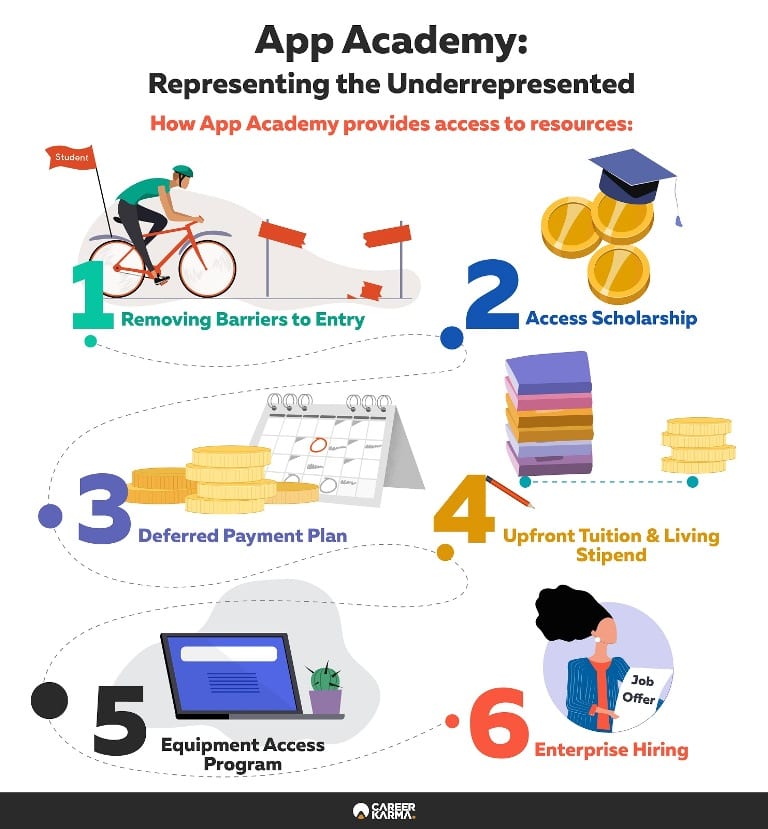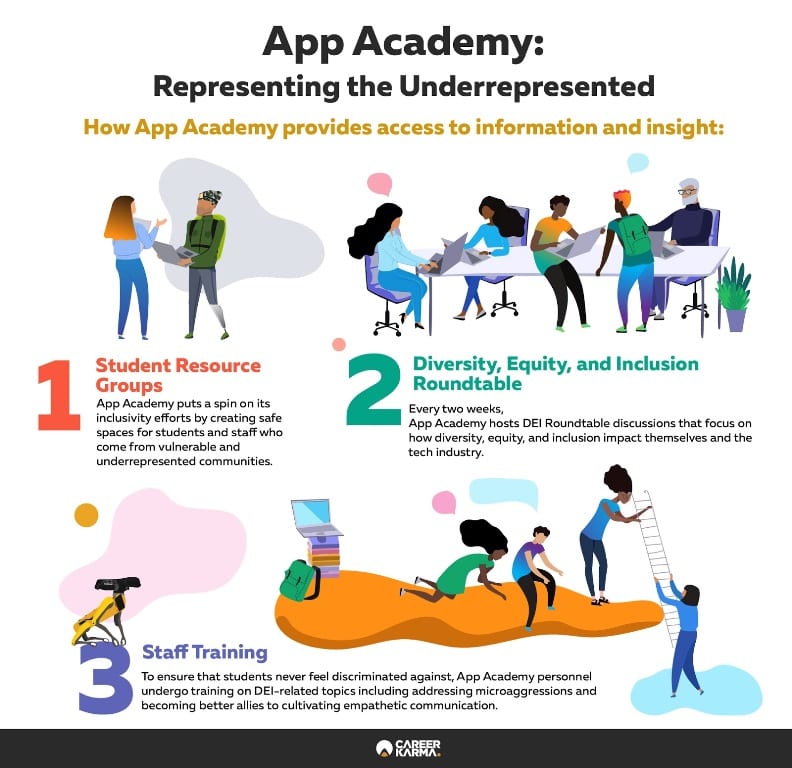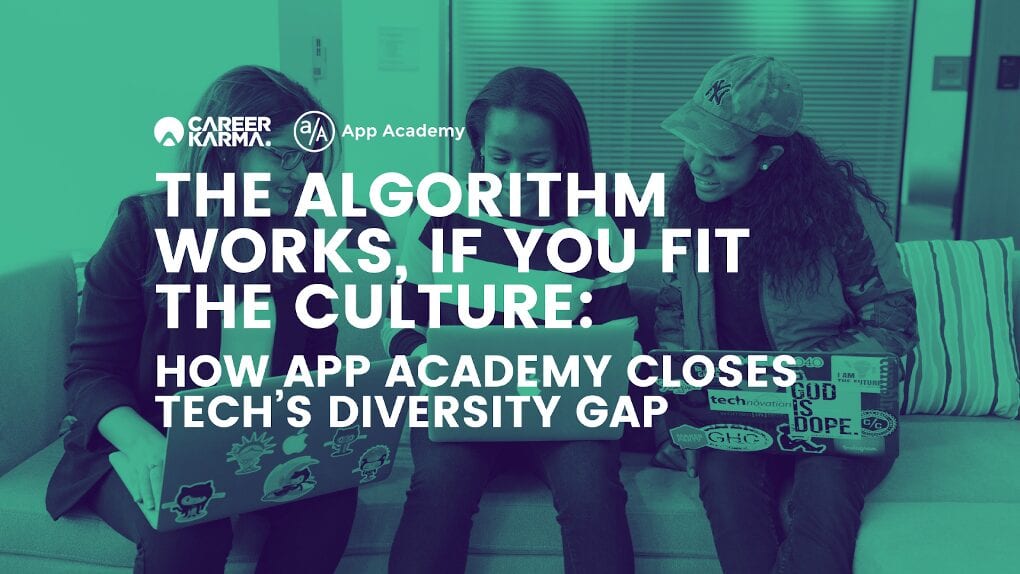In 2015, Google drew the ire of the public after its image-recognition app auto-tagged photos of Black people as “gorillas.” The following year, a tool used by US courts to measure a defendant’s re-offending rate was found to flag Black defendants as high risk far more than likely as white defendants.
Amazon, in 2018, was forced to ditch its internal AI recruiting tool that favored male applicants over female applicants. The blunder was caused by the way the system was trained, learning from resumes that predominantly came from male candidates. As a result, the tool immediately downgraded resumes that contained the word “women’s.”
These instances of algorithmic bias speak to a pervasive issue within the tech industry: the output is only as good as the input; and in the tech industry, that input remains homogeneous. Put simply, the algorithmic biases say more about the industry than the algorithm itself.
But what exactly causes the tech diversity gap?
When Culture Fit Undermines Diversity
If you’ve been following conversations about the tech industry’s diversity gap, then you might have heard of the metaphorical “pipeline defense”. The argument goes like this: There are simply not enough women, people of color, and other members of minority groups pursuing tech. This, in turn, results in a homogenous talent pipeline dominated by pale “brogrammers”.
While it’s true that fewer women and people of color pursue a computer science education year in and year out, the pipeline defense conveniently overlooks the root of the problem. That is, the yawning gap in diversity within the tech industry is not due to a lack of interest nor talent among members of minority groups. It’s a problem of culture, made worse by a misguided definition of “culture fit”.
In principle, “culture fit” isn’t a bad thing. For most companies, it’s a requirement to ensure that the people they take in share the same values as the company. However, when used as a pretense, “culture fit” can become a tool to keep minority groups on the margins while furthering the homogeneous talent pipeline.
This is especially true when the focus pivots to one’s sexual orientation or skin color rather than one’s values and competency. As Harvard Business Review reports, this misguided view can “contribute to a company’s lack of diversity, since very often the people we enjoy hanging out with have backgrounds much like our own.”
This is where coding bootcamp App Academy comes into play. Instead of training individuals for culture fit, App Academy embraces a “culture add” mindset. As a result, the bootcamp produces qualified tech professionals who not just fit the industry’s values but also add much-needed diversity.
App Academy: Representing the Underrepresented
App Academy steers clear from surface-level diversity efforts and onto more meaningful initiatives by providing access on two fronts: access to resources and access to information and insight.
1. Access to Resources

Removing Barriers to Entry
App Academy’s first line of action is by removing the degree requirement for any interested applicants, opening its doors to a wider pool of talent. This targets what has perhaps been overlooked in diversity and inclusion conversations: increasing cognitive diversity.
At present, 34 percent of App Academy graduates are high school graduates. Four percent had an associate degree, another four percent held a postgraduate degree while 58 percent were college graduates.
Access Scholarship
In 2020, NPR reported that people from historically underrepresented communities were disproportionately affected by Covid-19. The disparity was linked to “pre-pandemic realities,” from limited access to healthcare to implicit biases.
As if in response to this, App Academy, in partnership with Facebook, recently rolled out the Access Scholarship, an initiative that seeks to assist aspiring App Academy students who identify as members of underrepresented communities.
Totaling $500,000 worth of tuition scholarships—Facebook’s biggest donation to date—minorities who continue to suffer from the pandemic receive relief for their education. Those selected will be eligible for a $5,000 worth of scholarship and a seat to App Academy’s 16-week Software Engineering Immersive.
Deferred Payment Plan
App Academy’s tuition model is a deferred payment plan, also known as an income share agreement loan, that revolves around the “learn now, pay when you’re earning” policy. It’s pretty self-explanatory.
You go into App Academy’s 24-week Software Engineering Immersive without paying any amount upfront. Instead, you pay with a promise. That is, once you graduate from the program, complete the job-search process, and secure a job that pays at least $50,000, you’ll pay back with 15 percent of your monthly income. This continues until you’ve made 36 monthly payments or hit the $31,000 cap, whichever comes first.
What if you find yourself unemployed despite completing the job-search process? App Academy waives your ISA. The way App Academy’s ISA is structured is precisely why it’s become the most popular among its financing options.
For one, the ISA eliminates the income or credit score requirement. Translation: it’s open to anyone regardless of how much you have in your bank account. Secondly, while it still incurs debts, it puts forward a less risky option for the debt-averse. Lastly, it reflects the bootcamp’s commitment to setting its students up for success. If you don’t earn, the bootcamp doesn’t either.
Upfront Tuition + Living Stipend
Despite it costing only a fraction of college education, a bootcamp program doesn’t come cheap. For App Academy, it could cost $17,000 to $20,000, depending on the program you choose. So, while paying out of pocket takes care of business from the get-go, it can put a huge dent in your bank account.
This is why students who choose to pay $20,000 upfront can apply for a living stipend up to $8,500 through the resident bootcamp student loan provider, Climb Credit. According to App Academy’s website: “Climb Credit works with students from all kinds of credit backgrounds, including people without any credit to their name.”
“If your application is approved and you decide to accept a loan with Climb, you can make smaller or even no payments while you’re in school so you can focus on your bootcamp, not your loan.”
Equipment Access Program
While not a financing option, this initiative similarly provides access to resources, namely, to educational materials. The Equipment Access Program lends computers to low-income students who can’t afford the necessary hardware for App Academy’s immersive programs, making sure that they don’t get left behind.
Enterprise Hiring
Recognizing “culture fit” as a likely barrier to entry for its minority graduates, App Academy partners with top tech companies to help accelerate its graduates’ job-search process.
Benefitting on the other end are the companies who wish to improve workplace diversity and accelerate their hiring process. A bonus: because App Academy students undergo rigorous training, companies are sure to benefit from a diverse and qualified talent pool.
To date, App Academy graduates have successfully secured jobs at top companies, from unicorn companies, startups, and Fortune 500 companies. These include companies like Facebook, Microsoft, Slack, and Uber.
2. Access to Information and Insight

Staying informed is perhaps one of the most crucial factors to developing and articulating commitment towards diversity and inclusion. However, it’s usually the one that’s most taken for granted.
Because of the amount of information online regarding diversity, it’s easy to get lost in the conversation. App Academy ensures that everyone, from its staff to its students, has access not just to information but also to much-needed insights. After all, anyone can fill his or her brain with massive amounts of information yet have no clue of their value.
Student Resource Groups
App Academy puts a spin on its inclusivity efforts by creating safe spaces for students and staff who come from vulnerable and underrepresented communities. Through its student resource groups, members can discuss the challenges they face and share their advocacies.
The groups are designed to empower members to celebrate what makes them unique and navigate the tech industry with confidence. App Academy’s SRGs include the Black, Indigenous, Latinx, Asian, women, trans, gender non-conforming, LGBTQ, veterans, disabled, and parents.
Diversity, Equity, and Inclusion Roundtable
Every two weeks, App Academy hosts DEI Roundtable discussions attended by both students and staff. Students discuss how diversity, equity, and inclusion impact themselves and the tech industry.
Also touched upon are App Academy’s corporate social responsibility, company culture, biased technologies, workplace discrimination, and allyship. Engaging in these conversations equips students with the right mindset as they prepare to launch their tech careers. Not to mention it also pushes App Academy to reflect on further efforts they can make to address tech’s diversity gap.
Staff Training
To ensure that students never feel discriminated against, App Academy personnel undergo training on DEI-related topics. These range from addressing microaggressions and becoming better allies to cultivating empathetic communication.
App Academy: Building a Diverse and Inclusive Culture
As calls for diversity and inclusivity take on a renewed sense of urgency, efforts to move the needle have become more necessary. App Academy actively advances such efforts from application through graduation.
“Education for Black Americans was never out of reach for any lack of desire,” shared Erica Thompson, one of App Academy’s alumni and diversity scholars. “App Academy has created access to [a] specialized education and experience in such a lucrative and competitive field. This allows me to overcome some of the setbacks that still affect me as a Black millennial in America.”
From increasing access to resources and information, App Academy drives one simple message: Representation matters, and it’s even more pressing in an industry that has permeated nearly every aspect of our lives. App Academy changes the face of Silicon Valley by creating a more diverse and qualified talent pool so that the next time an algorithm is written, it works for everyone.
Are you a minority? Take this chance to claim your space in the tech industry. Add to, don’t fit, the culture. Start with App Academy.
About us: Career Karma is a platform designed to help job seekers find, research, and connect with job training programs to advance their careers. Learn about the CK publication.




